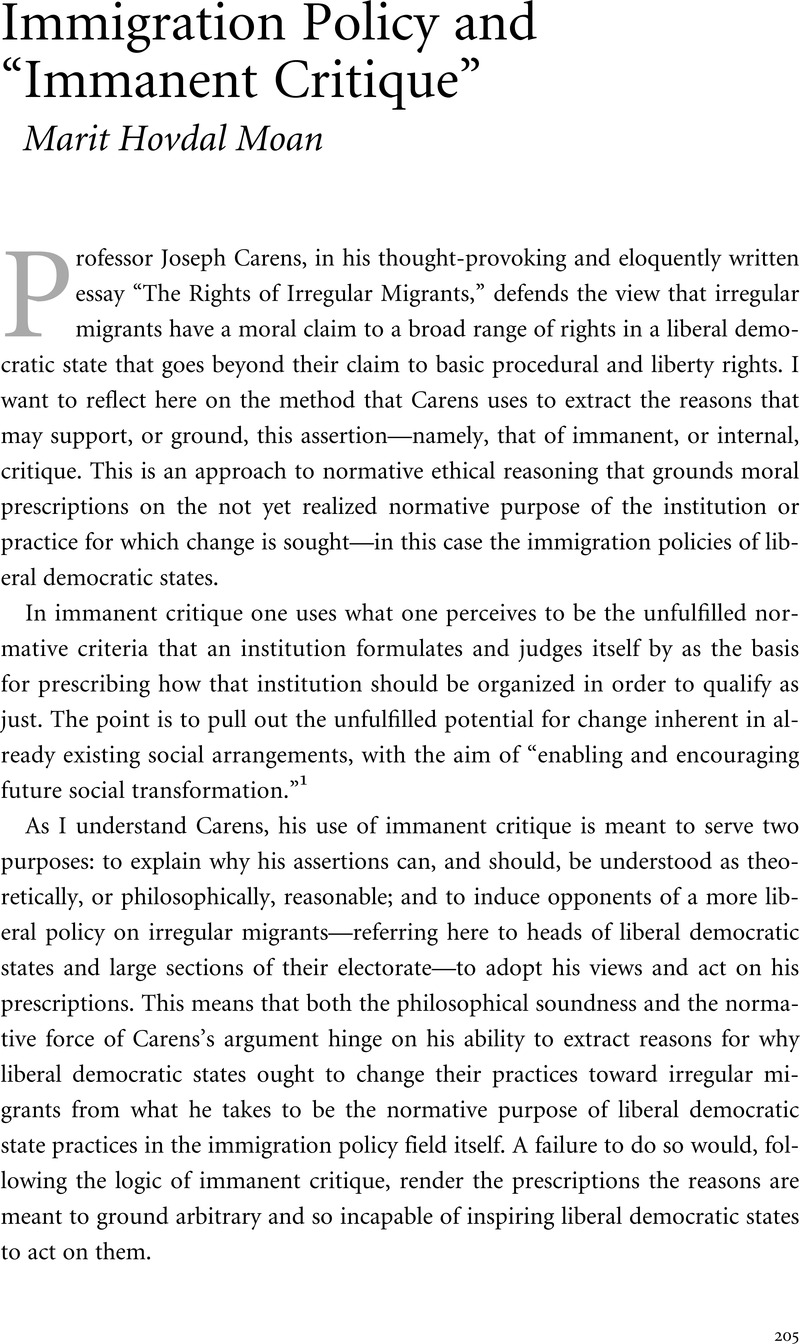Article contents
Immigration Policy and “Immanent Critique”
Published online by Cambridge University Press: 25 March 2011
Abstract

- Type
- Symposium
- Information
- Copyright
- Copyright © Carnegie Council for Ethics in International Affairs 2008
References
Notes
1 Seyla Benhabib, Critique, Norm, and Utopia: A Study of the Foundations of Critical Theory (New York: Columbia University Press, 1986), p. 109.
2 David Held, Introduction to Critical Theory: Horkheimer to Habermas (Cambridge: Polity Press, 1980), p. 383.
3 Michael Walzer, Thick and Thin: Moral Argument at Home and Abroad (Notre Dame, Ind.: University of Notre Dame Press, 1994), p. 42.
4 Carens uses the term “basic human rights” to refer to this set of rights, but I take him to mean basic rights, inasmuch as the essence of the concept of human rights is that one possesses them regardless of one's status in, or relationship to, a political community. Carens's point is not, as far as I understand, that irregular migrants should enjoy these rights by virtue of their personhood, but by virtue of the fact that most modern liberal democratic states already formally recognize that irregular migrants should enjoy them.
5 Joel Feinberg, Harm to Others: The Moral Limits of Criminal Law, vol. 1 (New York: Oxford University Press, 1984), p. 31.
6 See, e.g., Seyla Benhabib, The Rights of Others: Aliens, Residents, and Citizens (Cambridge: Cambridge University Press, 2004); and Thomas Hammar, “Legal Time of Residence and the Status of Immigrants,” in Rainer Bauböck, ed., From Aliens to Citizens: Redefining the Status of Immigrants in Europe (Vienna: Avebury, 1994).
7 Walzer, Thick and Thin, p. 47.
- 1
- Cited by


